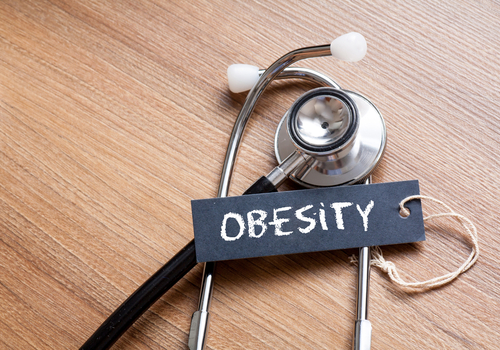Patients have a negative attitude towards overweight and obese doctors: Study
M3 India Newsdesk Feb 14, 2018
Throwing light on whether physicians’ body weight has any impact on the patients’ perception and attitude about the doctor.

The prevalence of overweight and obesity is wide-spread around the globe. Physicians play a vital role in counseling their patients for effective weight loss and helping them adopt a healthy lifestyle. However, would a patient heed the weight loss advice in the same when provided by a physician who is obese himself?
Weight bias is no more a one-way affair
Previous studies had suggested that physicians are negatively biased to patients who are overweight. These patients are often considered lazy, having lack of willpower and self-discipline. This perception has been prevalent in physicians despite knowing that obesity has multifactorial cause including genetics, environment, and certain organic causes that are non-modifiable. The physician advice to overweight patients and their disease management also depended upon their perception of the patients.
A new study revealed that patients too have weight bias towards overweight and obese physicians. The results have brought the physicians, at the receiving end of the bias.
Patient perception of overweight doctors
An online survey was carried out to assess the patients’ perception of role-modelling weight-related health behaviors towards physicians of different weight range (normal weight, overweight and obese physicians).
The purpose of the study was to identify patients view towards the physicians and the willingness to follow their medical advice. Approximately 358 participants completed the questionnaire examining their perception and a measure of explicit weight bias to determine if the anti-fat attitude is related to the weight of the physician.
The study found that overweight and obese physicians were exposed to the biased attitudes of patients. Physicians’ excess weight negatively affected patients’ perceptions of their reliability, and patients were less likely to trust them and adhere to the medical advice of the overweight/obese physicians.
Impact on physicians practice
Patients were more likely to change their providers and not comply to the medical advice of an overweight/obese physician when compared to a normal weight physician. The patients make assumptions about the health status and health behaviors of the physician based on body weight alone. These weight biases remained irrespective of the participants own body weight.
It implies that overweight and obese physicians might lose their patients to doctors who are normal weight. Stronger weight bias leads to a difference in the patients’ perception. Patients convey higher trust, credibility and more inclined to follow the advice of normal weight physicians. In contrast, to obese physicians, patients show lesser trust and credibility.
Changing dynamics of doctor-patient relationship
Obesity, in present days, has caused an inevitable weight-based stigmatization and discrimination against all the individuals. Doctors are no less immune to the stereotypes and stigma related to obesity.
Although patients consider doctors as their role models, it may not be feasible for doctors to “practice what they preach” in terms of weight loss and weight maintenance counseling. Perhaps, it may cause the patient to ponder the advice of overweight/obese doctors over the advice of normal weight doctors. Having said that, is the change in patient attitude effecting overweight doctors to lose patients or revisits?
Overweight doctors are perceived as being two-faced when they offer weight loss advice to patients. Some doctors who are obese are less likely to discuss the weight loss with patients as they feel they may come off as hypocritical if they instruct their patients to do something that they apparently have a difficult time with.
The final word
Although overweight doctors may feel hypocritical in counseling their patients to lose weight, obesity experts say it’s the communication and not the communicator that’s important in helping patients. Regardless of a doctor's own body weight, their communication with patients should be the same. Whether the patients are skeptical about the physicians’ advice on weight loss only or does the mistrust include other healthcare aspects also, is yet to be researched.
Furthermore, this type of ideology may affect the doctor-patient relationship. Physicians, irrespective of their body weight should educate their patients to build up the confidence in losing weight and help challenge the stereotypes.
Reference: Puhl RM, Gold JA, Luedicke J, DePierre JA.; (2013): The effect of physicians' body weight on patient attitudes: implications for physician selection, trust and adherence to medical advice 37 (11).
-
Exclusive Write-ups & Webinars by KOLs
-
Daily Quiz by specialty
-
Paid Market Research Surveys
-
Case discussions, News & Journals' summaries